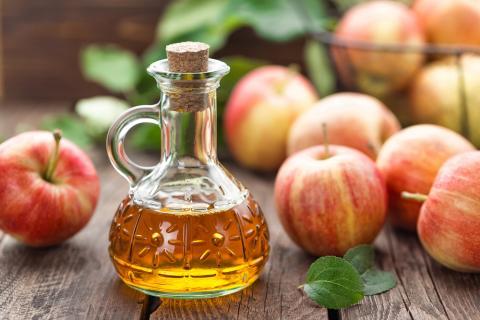
Stomach cramps and bloating are uncomfortable at best, and downright painful at their worst. Almost all of us are familiar with dull pains that originate in our lower abdomen and cause us to curl up, swearing to avoid dairy or roasted garlic for the rest of eternity. Knowing a few holistic methods to soothe the crankiest of stomachs or the most irritating bloats can go a long way towards keeping us happy and healthy. Here’s how to soothe your stomach.
What causes stomach cramps & bloating?
Stomach cramps can be innocuous or dangerous, and may be related to everything from gas to irritable bowel syndrome, better known as IBS. Severe stomach pain and anything that lasts several hours or days—or consistently returns—should be looked at by your doctor. For the purposes of this article, we will focus on stomach cramps that are not serious and can be dealt with by a few simple changes, or in some cases, additions, to your lifestyle.
Like stomach cramps, most bloating is not serious and has a variety of potential causes. Higher salt intakes can cause bloating due to water retention, as can an abundance of carbohydrates. Additionally, “bubbly” foods, which include sparkling water, seltzers, and sodas, can cause gas in the intestines, while eating too fast and chewing gum can provide a similar effect.
Allergens, like dairy, can also be suspect if bloating occurs regularly after eating foods with lactose. Women may also be prone to bloating during, or right before, menstruation.
What can I do when I’ve got cramps & bloating?
While pain relievers can be a quick-fix to painful stomach cramps, there are several more holistic fixes that can be used on a regular, if not daily basis.
If you are experiencing irregular or severe stomach cramps or bloating, visit your doctor or healthcare professional.
1. Ginger
Ginger is Ayurveda’s best kept secret, good for everything from stomach pain and immune health, to nausea and the common cold. Try keeping a pouch of dried ginger in your purse or backpack, or brew a cup of ginger tea. Sprinkle ginger powder in dishes that can be a little more finicky on the stomach (like those that are heavy with onions or garlic) or simply slice a chunk of raw ginger and munch away.
2. Apple Cider Vinegar
This pucker-your-lips vinegar has become more popular in recent years and for good reason. Apple cider vinegar (or ACV as it’s lovingly known) is used to treat ringworm and allergies, and for those suffering from stomach cramps or bloating, settle an upset stomach. Look for brands that carry the “mother” to receive the benefits of the enzymes natural in raw, unfiltered vinegar and add a spoonful to a glass of water. Taste too strong? Make switchel, which also contains ginger, for a doubly stomach soothing approach.
3. Peppermint
Peppermint is one of the easiest herbs to grow in your backyard garden, and also the fastest to spread. Luckily, peppermint can be used to boost memory, protect against gum diseases and cavities, and take care of several digestive issues, including nausea, ulcers, flatulence, and gastrointestinal disorders. Peppermint can be found in various forms, including essential oils, fresh herbs, dried herbs, and even topical creams. Personally, I find peppermint tea—brewed hot with fresh herbs and a dollop of honey—especially soothing.
4. Bitters
Bitter foods have long been used to aid digestion, and bitters make getting these bitter foods down the gullet much more palatable. Bitters are herbal tinctures, usually preserved in alcohol, that soothe the stomach, both as a preventative and a symptom-reliever. There are a variety of bitter herbs that can be used: dandelion, burdock, yellow dock root, and Angelica root are popular choices. While some of these can be used in recipes, bitters may be the best way to utilize these pucker-worthy foods. Not enthralled by the herbs and roots mentioned above? Try blessed thistle, gentian, or centaury.
5. Probiotics
Probiotics are bacteria that we often refer to as “good” bacteria, because of their roles in digesting our food, absorbing nutrients, and keeping our immune system healthy. Adding probiotics to your diet can help keep your digestive system healthy, and luckily there are now a slew of choices that make this easy, not to mention delicious. Try sauerkraut, kimchi, kefir, or kombucha. Even sourdough bread and natto—fermented soybeans—can boost the number of probiotics in your gut. Need even more help? Look for probiotics at your natural grocer or health food store, but ensure you purchase refrigerated probiotics since many bacteria are sensitive to heat.
Do you have any holistic cures for stomachaches or bloating? Let us know in the comments below!








